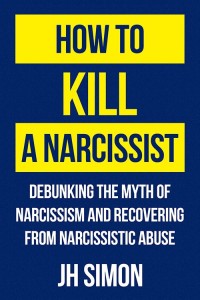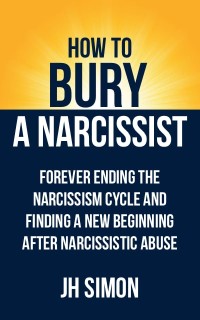Table Of Contents
Understanding what causes narcissistic personality disorder is as complex as the human mind. However, we can distil it down to one core emotional wound, caused by one fundamental deficiency; the shame of not being seen.
Some children grow up in a cold, grandiose environment, incessantly pushed toward being more and achieving more by an overbearing parent. The parent themselves usually has narcissistic personality disorder, and is driven by an unrelenting thirst for more; more status, more money, more attention and more recognition, and forces their child to partake in this doctrine.
Growing up in such a shameless environment suffocates the child’s authenticity and tends to be what creates a narcissist. But the question remains: Where did this thirst originate?
Shame And Trauma: The Core Of Narcissistic Personality Disorder
One of the most painful yet insidious wounds a child can have is that of not being seen. To be seen is to be valued. Every child craves the acknowledgement and validation of their guardian’s loving gaze. It is a crucial need for regulating self-esteem, as well as having a sense of safety and belonging.
Through being seen and accepted as they are, the child feels validated and legitimised, and can relax and enjoy the experience of childhood. There is no need to show off or act up, the child feels ‘special enough.’
Neglectful parents, however, are often too dissociated, distracted, depressed or emotionally unstable to see the child. Their ancestors may have lived during conflict or war, where survival and stability were a higher priority than emotional well-being. Intergenerational trauma can plague a family, passed on through behavioural patterns, belief systems, addiction and even DNA. This leads to systemic dysfunction becoming like the air a family breathes.
If the child expresses anger to protest this painful state of affairs, they are usually counterattacked and forced to repress their rage. Having no power to be seen, the child eventually concludes that they are simply not worth it. They become tortured by an agonising sense of inferiority, worthlessness and, of course, shame.
Through angrily demanding attention and feeling connected to others, the child can experience a sense of control and power. If instead the child is denied their right to be seen, they reach a point where they can no longer tolerate the shame.
The Loss Of Control
To the child, the parent’s reasons for abuse and neglect mean nothing. A happy and loving parent is good, and an emotionally deadened or angry parent is bad. The child has no hope of understanding the dysfunction of their situation.
When a guardian neglects the vulnerable child, the child is exposed to a sense of impending terror from the spectre of abandonment. When a guardian attacks the child or grossly abuses their boundaries, the child experiences shock, eventually being flooded with toxic shame.
Both forms of abuse threaten the child with annihilation; one is death by abandonment, the other is death by attack. In both situations, the child’s foundation collapses from the psychological earthquake.
Devastated and having lost all control, the child clambers to regain it — whatever the cost. The child’s solution is to dissociate from reality and retreat into fantasy, hence numbing their emotions. This coping mechanism is the first line of defence the child has to regain a feeling of control. By escaping into their mind, the child can conjure an imaginary sense of connection and power.
Wrestling Back Control
It is the nature of trauma that even when the original situation is gone, the fear generated by the threat remains in the body. Unless this original wound is quickly depressurised and released, it remains in place, and the mind builds around it.
Meanwhile, the child moves on to life’s challenges, even as paranoia infects their every experience. This leaves them far less likely to trust others, since they are always looking through the lens of trauma. Add to that a string of shame experiences, which bind together with the trauma, and you have the perfect cocktail for a dissociated personality.
With trauma and shame consuming the child, it takes little for them to realise that powerlessness leads to terror, and regaining power in any form alleviates it. As they grow, the child scrambles to develop ways to gain control over their environment. They get their chance during the narcissistic phase, where imagining oneself as superior crystallises and forms into a grandiose false self; a construct detached from reality.
The Narcissistic Solution
As the wounded child’s thinking mind emerges, a new, imagined ‘self’ forms over the traumatised one, bringing with it the capacity for the child to influence their environment and manipulate their mood.
The child finds that imagining this emerging self as powerful offsets feelings of shame and worthlessness. In effect, the child splits themselves in two, committing entirely to their ‘good child,’ and discarding the shame-based ‘bad child.’ They then reinforce the grandiose, ideal self by experimenting with controlling the people around them to prove their superiority.
You can see this ‘superior’ self in action when the child:
- Constantly asks for approval.
- Bullies other children.
- Compulsively lies and creates fictional stories.
- Deflects questions from adults to avoid accountability.
- Tries to gradually push the limits by misbehaving in covert ways.
In each case, the child is acting out their imagined ‘all-powerful’ self. In the face of shame, there is usually a limited integration of the authentic Self into the ego, since experiencing it is too painful. By living through their new, shiny false self instead, the child loses touch with their guilt, empathy and shame. Their world becomes an abstraction, a projection of their imagination.
Goodbye, Cruel World
The worse the trauma, the more compelling and absolute this false self must be. The child might practice being aloof around family members, hoping to remain under the radar. They also find that their innocence disarms the adults, and so might exaggerate it by being charming and obedient. They integrate these behaviours into their personality and use them as tools to distract both themselves and others from their traumatised, shame-based Self. The price they pay for this solution, however, is immense. To find sanity, they sell their soul.
The child gives up their need for security and love, and instead directs their energy into maintaining their grandiose false self. The authentic Self remains buried, and is replaced with a pale imitation; a set of behaviours which make up a personality, aimed at gaining cooperation through deception, manipulation and control.
Instead of genuine connection, the child enters the world of power; a realm where the child can pull the strings. This pseudo-reality exists in its own bubble, requiring others to engage and feed it to keep it alive.
The Unshakable False Self
Although a child is magical in their thinking to begin with, they usually get a chance to test their fantasies against reality and tone down their delusions.
For the traumatised child, reality is terrifying and painful. Grandiose fantasies are all they have to numb their trauma. Eventually, a convincing, tightly-layered false self develops as the child moves into adulthood.
With a dense, rigid mind, there is no space for the authentic Self to express itself, robbing the child of the experiences needed for growth and real maturity. Peeling off the layers of this false self subjects the child to a torrent of painful emotional flashbacks.
The more compelling someone’s false self is, the harder it becomes to challenge it. People cannot see that beneath the traumatised child’s facade they are forever vigilant, always on guard, unable to establish a foundation for mutually-beneficial, authentic relationships.
What perpetuates this unshakable false self and keeps it functioning well into adulthood is that:
- It exists beyond the child’s realm of awareness.
- It maintains the sanity of the child, along with their psychological health.
The false self is an integral part of the child, and no matter how intelligent and resourceful they become, the core remains untouched. To challenge this false self is to provoke the child’s mask, which to them is what allowed them to survive the sadness, neglect and terror of childhood.
The Importance Of Intimacy
To be intimate with someone is to be truly seen by them. Not only are they present with you, but open-hearted. You feel safe expressing your thoughts, emotions and doubts to them. The intimate other looks upon you with love, and is delighted not only by who you are, but also by the fact that you simply are.
This kind of emotional resonance breeds confidence and power in a child. The more intimacy you receive, the more your authentic Self feels safe to expand.
In short, intimacy is the absence of ego. Where the ego is a mind construct designed to filter a person’s experience and emotions, intimacy is the relinquishing of this protective layer. Such an act of faith allows humans to connect authentically, which creates a sense of well-being, safety and compassion.
In a state of genuine connection, a person is also more likely to adhere to moral standards, because intimacy means functioning within the realm of our emotions, which includes shame and empathy. To maintain the connection, we are challenged to consider the feelings of the other person. This mutual space is beneficial for all parties, and it is in the best interest of everybody to handle each other’s feelings with care.
Furthermore, it is the promise of intimacy which endears us to each other. Once our basic needs are met and we feel secure in our environment, we begin to crave deeper human connection.
When Trust Dies
In the worst cases, the child is perpetually abused or neglected without any offer of intimacy. They looked to their guardian to love them and were disappointed time and time again, leaving them with a burning sense of inadequacy. Other times their behaviour brought on their guardian’s wrath, and the resulting trauma became too much.
It is precisely during these times of shame and terror that the child will look to their inner ‘good child’ to provide them comfort and escape. This good child is their grandiose false self, which creates the illusion that not only are they ‘good,’ but better, stronger, smarter and more capable of being seen than anyone else. They conclude that nobody can be trusted to cater to their needs, deciding never again to lower their guard.
The child leaves their emotional world behind and connects with a construct of their imagination. In doing so, they effectively cease being human. That is, they refuse to be ‘ordinary,’ and no longer feel what an average person feels, hence allowing them to break free from the ‘bondage’ of humanity. They give up the search for true intimacy and stop trusting that it will come to them.
The Onset Of Narcissistic Personality Disorder
While the traumatised child gains a sense of power and pain relief in their false self, they also give up the sustenance of their authentic Self.
Without the internal nurture of love, wisdom and humanity, the traumatised child becomes plagued by an eerie emptiness. To maintain their false self, they need to feed it externally.
The child observes their guardians and other adults, and takes note of how those people obtain compliance. Grandiosity, aggression, trickery, charm and shamelessness become the child’s ways of relating. Using these tools, they test their environment, fishing for weak spots in others and opportunities to manipulate and control. To survive and thrive, they need a constant supply of attention and energy for their false self. There is no resting in being for the wounded child. Attention, control and mind games are all they have.
People also seem to respond positively to the child’s shamelessness, impressed by their apparent confidence and self-control. Without the negative emotions of their authentic Self, the wounded child takes on a clean, godly appearance.
The child finds they can make intense eye contact, their posture improves, and they intimidate more easily. They use all of their craft and cunning, seeking out ways to manipulate their environment to obtain power. They relish the resulting feeling of control, fantasising about how far they can take it. In time, narcissistic supply becomes their drug of choice, and the narcissist is born.















